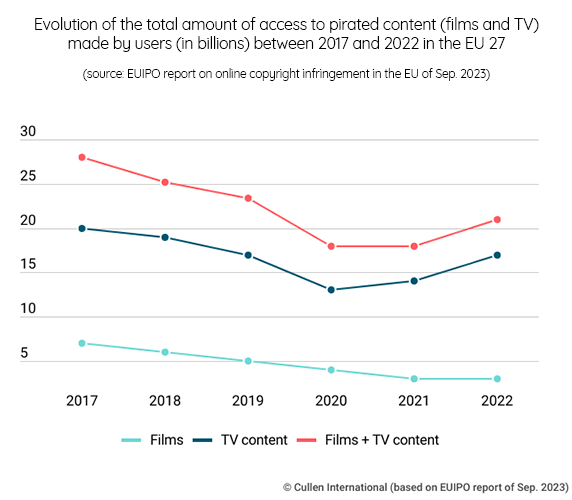Cullen International has just published a new benchmark showing in thirteen selected countries if there are specific procedures (beyond court decisions) on dynamic blocking injunctions and the type(s) of authority involved in the process.
Dynamic blocking injunctions are used to put an end to repeated online piracy infringements (that often occur immediately after issuing an injunction), and therefore enhance the effectiveness of the measures to fight online piracy. They allow new internet locations to be covered without the need for a new procedure to obtain another injunction.
The benchmark shows that in nine out of the thirteen countries surveyed, dynamic injunctions are used to fight online piracy. Belgium, France, Italy and Spain have special procedures in place where administrative authorities (and sometimes independent regulatory authorities) are involved.
According to a report of the EU Intellectual Property Office, piracy (for films and television content) is on the rise again since the end of 2020, after having slightly fallen during the COVID-19 pandemic.

For more information and access to the benchmark, please click on “Access the full content” - or on “Request Access”, in case you are not subscribed to our European Media service.
more news
25 February 26
Protection of minors: overview of national initiatives on banning access to social media
Our latest benchmark shows that an increasing number of European countries are discussing a potential social media ban on children.
23 February 26
The DNA explained: universal service to serve the same goals under a revised approach
Cullen International is issuing a series of analyses on different aspects of the Digital Networks Act (DNA) proposal. This report covers universal service.
20 February 26
Revised Cybersecurity Act (CSA2) - Changes to the EU cybersecurity certification framework
Cullen International published an analysis of the proposed changes to the EU cybersecurity certification framework under the draft Cybersecurity Act 2 (CSA2) delivered by the European Commission on 20 January 2026.